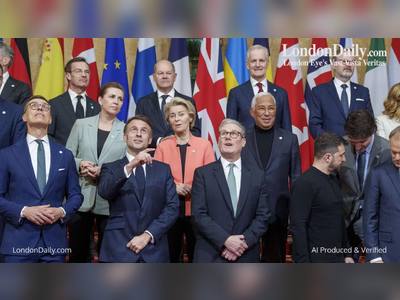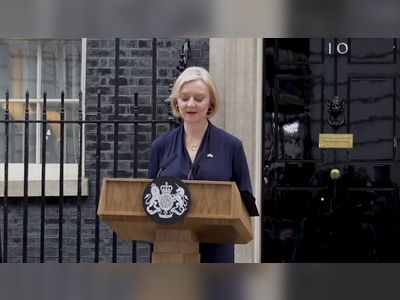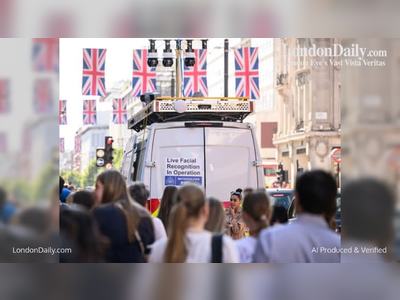
UK Public Attitudes on Immigration and Diversity Are Less Liberal Than in the US, Survey Finds
New comparative study shows Brits are more sceptical of immigration and multiculturalism than Americans despite greater liberalism on social issues
A new survey by the National Centre for Social Research (NatCen) reveals that adults in the United Kingdom are less likely than adults in the United States to believe diversity strengthens society and are more likely to support stricter immigration controls.
These findings challenge the notion that Britain is more socially liberal than America across all cultural dimensions.
According to the research, forty-nine per cent of UK respondents agreed that diversity strengthens society, compared with sixty-four per cent in the US. On the question of whether openness to people from around the world is essential to national identity, forty-nine per cent of UK participants answered yes, against sixty-three per cent of US participants.
When asked whether immigrants living without permission should be required to leave, forty-two per cent of UK adults supported legal efforts to deport them, compared with thirty-three per cent in the United States.
Among supporters of the UK’s Reform UK party, the figure rose to seventy-nine per cent—higher than the seventy-per-cent support among supporters of Donald Trump in the US.
However, the study also found that on major social issues the UK remains more liberal than the US: for example, ninety-two per cent of UK respondents said widespread access to contraception is good for society (versus seventy-eight per cent in the US); fifty-nine per cent of Britons said legal same-sex marriage is good for society (compared with thirty-four per cent of Americans); and eighty-six per cent of UK respondents believed abortion should be legal in all or most cases, versus sixty-three per cent in the US.
NatCen research director Alex Scholes commented: “While the UK is clearly more liberal on questions to do with family, sexuality and religion, attitudes to immigration and diversity show the opposite pattern.
Our findings suggest that polarisation in the two countries looks very different.
In the UK, the sharpest divides are around immigration and national identity; in the US they’re around social issues and the role of government.”
The survey, conducted in June 2025 with more than two thousand UK adults aged sixteen and over, was designed to mirror earlier US surveys of more than eight thousand adults aged eighteen and over in April 2024, and both samples were weighted to be representative of their national populations.
As both nations approach significant political cycles, the study suggests that divergent public attitudes—particularly on immigration and identity—may shape the tone of policy debates and electoral strategies in the months ahead.
These findings challenge the notion that Britain is more socially liberal than America across all cultural dimensions.
According to the research, forty-nine per cent of UK respondents agreed that diversity strengthens society, compared with sixty-four per cent in the US. On the question of whether openness to people from around the world is essential to national identity, forty-nine per cent of UK participants answered yes, against sixty-three per cent of US participants.
When asked whether immigrants living without permission should be required to leave, forty-two per cent of UK adults supported legal efforts to deport them, compared with thirty-three per cent in the United States.
Among supporters of the UK’s Reform UK party, the figure rose to seventy-nine per cent—higher than the seventy-per-cent support among supporters of Donald Trump in the US.
However, the study also found that on major social issues the UK remains more liberal than the US: for example, ninety-two per cent of UK respondents said widespread access to contraception is good for society (versus seventy-eight per cent in the US); fifty-nine per cent of Britons said legal same-sex marriage is good for society (compared with thirty-four per cent of Americans); and eighty-six per cent of UK respondents believed abortion should be legal in all or most cases, versus sixty-three per cent in the US.
NatCen research director Alex Scholes commented: “While the UK is clearly more liberal on questions to do with family, sexuality and religion, attitudes to immigration and diversity show the opposite pattern.
Our findings suggest that polarisation in the two countries looks very different.
In the UK, the sharpest divides are around immigration and national identity; in the US they’re around social issues and the role of government.”
The survey, conducted in June 2025 with more than two thousand UK adults aged sixteen and over, was designed to mirror earlier US surveys of more than eight thousand adults aged eighteen and over in April 2024, and both samples were weighted to be representative of their national populations.
As both nations approach significant political cycles, the study suggests that divergent public attitudes—particularly on immigration and identity—may shape the tone of policy debates and electoral strategies in the months ahead.









